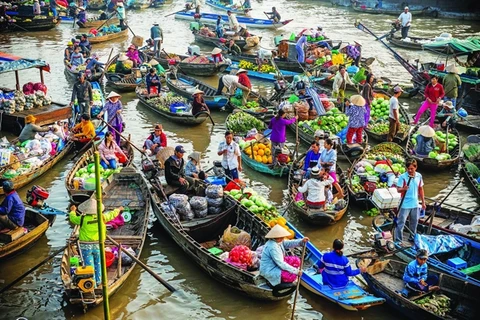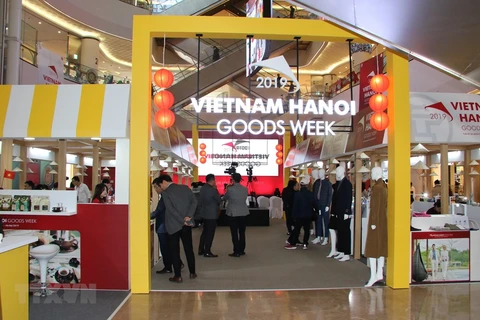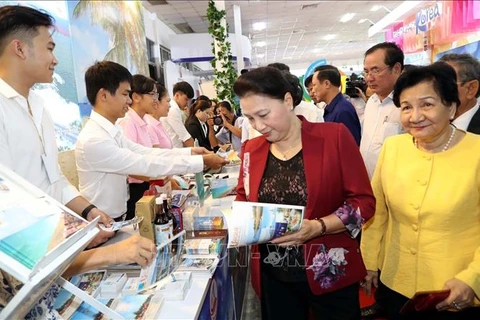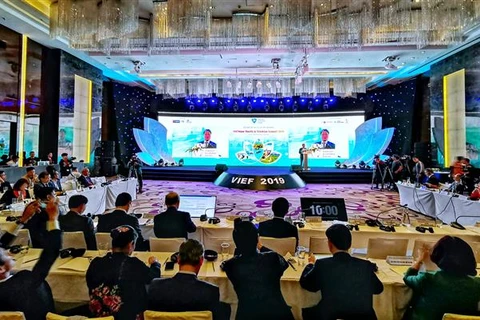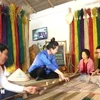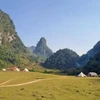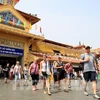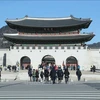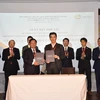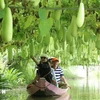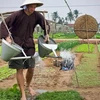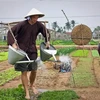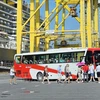Hanoi (VNA) – Experts gathered at the Vietnam Travel & Tourism Summit 2019 held in Hanoi on December 9 to discuss measures to help the Vietnamese tourism thrive in the future.
The first solution is revitalising national tourism promotion to inspire more foreigners to visit Vietnam. Participants contributed their ideas to improve the nation’s tourism messages and the operation of tourism offices abroad.
They emphasized the need for the early launch of a tourism development support fund, while other discussions dealt with how to address problems such as overcharging tourists, food safety and safety for visitors.
Experts also discussed how to improve tourists’ experience in preparing and planning Vietnam visits, considering the fact many visitors face difficulties in using Vietnamese online tourism services, such as real products not matching advertisements and a lack of direct consultancy.
Meanwhile, increasing tourism products, improving infrastructure, ensuring a safe environment, enhancing human resources quality and applying information technology are also key issues put on table.
Experts from an EU-funded project proposed piloting an index to rate the competitiveness of destinations in Vietnam.
Participants also mentioned the development of aviation to serve tourism development.
Vu The Binh, Vice Chairman of the Tourism Association, said tourism is an interdisciplinary economic sector, requiring the support of many industries and localities.
“There must be particular strategies to develop the services and products of destinations in each locality as well as preserving their traditional cultural value,” he said.
Many destinations in remote areas are difficult to access, thus localities should prioritise connecting roads, besides attaching environmental protection to tourism development, he added.
Tran Trong Kien, Chairman of the National Tourism Advisory Board (TAB), said Vietnam’s tourism industry had seen constant changes.
“In the past 10 years, most tourists booked their tours through travel agencies. Now, with the appearance of the internet, they have many more choices in their travel plans and journeys,” Kien said.
He suggested tourism enterprises start collecting information on customer data and use the information to provide services, helping enhance experiences for visitors.
The Government also needed to support firms to form a common database to promote the country’s tourism on digital channels, he added.
The number of foreign visitors to Vietnam has been growing at a two-digit rate, but the return rate is low at somewhere between 10-40 percent, heard the summit.
According to statistics of the Vietnam National Administration of Tourism under the Ministry of Culture, Sport and Tourism, international visitors’ spending in the country for a nine-day tour averaged only 1,000 USD, partly due to a lack of diverse products and services.
“In the recently released Travel & Tourism Competitiveness Index (TTCI) 2019 released by the World Economic Forum (WEF), Vietnam jumped four places from the latest 2017 ranking, which shows the country has improved in competitiveness,” said Deputy Minister of Culture, Sports and Tourism Le Quang Tung.
However, Vietnam still lags in the region considerably with regards to its tourist service and air transport infrastructure, weakness in environmental sustainability, the lack of product and location diversification, transport and services infrastructure and low-skilled labour force.
“Promotion activities have not showed actual effectiveness due to limited resources, loose operation mechanisms, a lack of overseas tourism promotion offices, the yet-operational tourism support fund and the overloaded airport infrastructure, which is unable to keep up with the growth of the number of tourists,” Tung said.
Vietnam’s visa regime, which has been liberalised in recent years, still lags compared to more open visa policies of key regional competitors, such as Thailand, Indonesia and Malaysia, he said.
Therefore, the forum is a national-scale event aiming to offer initiatives and solutions to overcome the limitations of Vietnam’s tourism sector, he said.
The Vietnam Travel & Tourism Summit 2019 was held by the government’s Advisory Council for Administrative Procedure Reform, the Ministry of Culture, Sports and Tourism, the Vietnam Tourism Advisory Board (TAB), the Vietnam Tourism Association and VnExpress online newspaper./.
VNA

